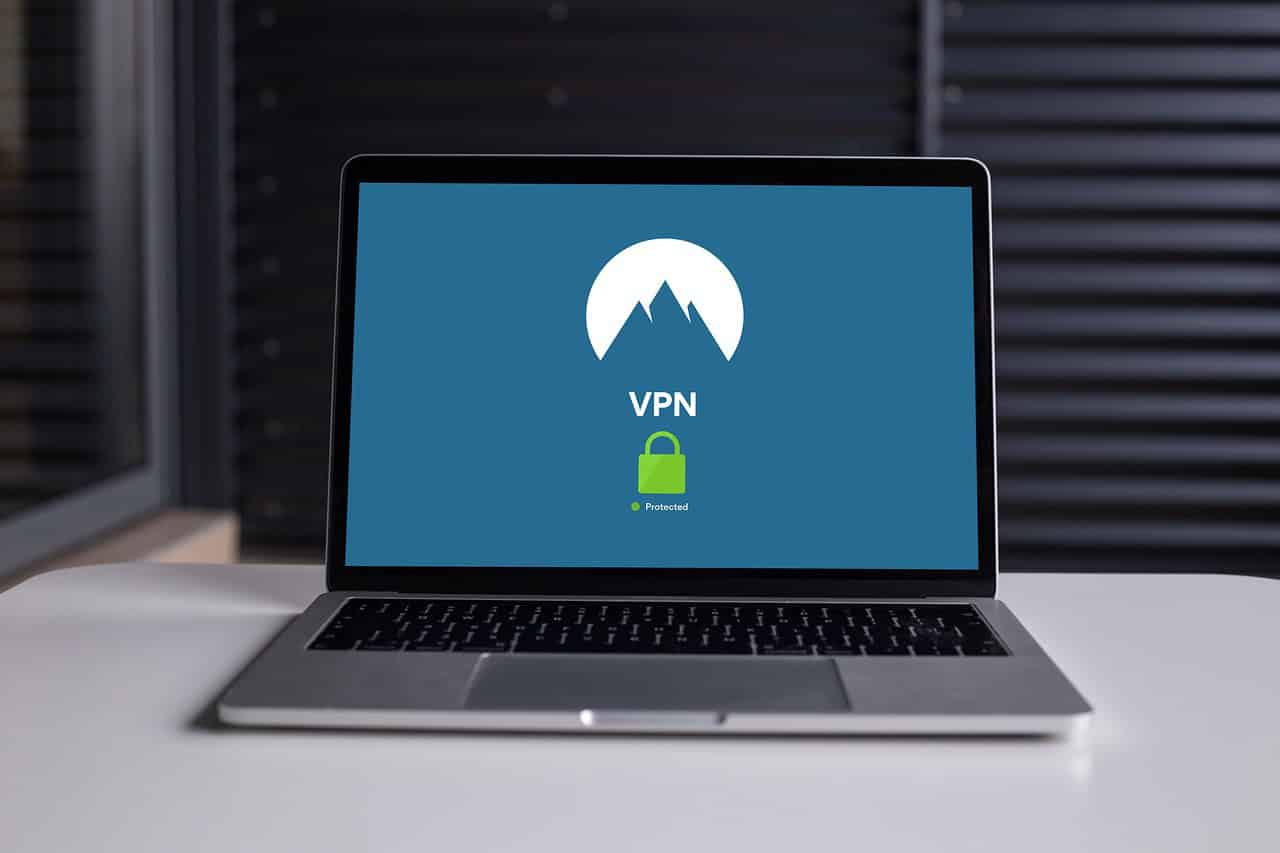Looking for a free VPN can feel overwhelming. There are many options out there, but not all of them offer good security or reliable service. The best free VPNs provide basic protection without speed limits or data caps while keeping your online activities private.
Free VPNs can help you browse more safely on public Wi-Fi and access content that might be blocked in your area. While paid options typically offer more features, several free services have earned solid ratings from users and tech experts alike. These top-rated options balance security needs with the reality that you’re not spending any money.
Using a VPN (Virtual Private Network) helps protect your privacy online by encrypting your internet traffic and hiding your IP address. While paid VPNs usually offer the best performance and security, there are a few trusted free VPNs that provide solid privacy without hidden risks.
⚠️ Important note: Many “free VPNs” make money by logging or selling your data. Always choose providers with a no-logs policy and a strong reputation.
🔒 1. Proton VPN (Best Overall Free VPN)
- Why it’s trusted: Based in Switzerland (strong privacy laws), strict no-logs policy.
- Free features:
- Unlimited data (rare for free VPNs)
- Servers in the US, Netherlands, and Japan
- Strong encryption (WireGuard & OpenVPN)
- Limitations: Free tier can be slower during peak times, limited server choices.
- Best for: Everyday private browsing and streaming basic content.
(Source: CNET, Top10VPN)
🛡️ 2. Windscribe Free
- Why it’s trusted: Transparent privacy policy, no IP or activity logging.
- Free features:
- 10 GB/month data (if you confirm your email)
- Servers in 10+ countries
- Built-in ad and tracker blocker (R.O.B.E.R.T.)
- Limitations: Data cap may run out quickly if streaming or downloading.
- Best for: Users who want privacy plus built-in ad blocking.
🌍 3. Hide.me Free
- Why it’s trusted: Independently audited, based in Malaysia (no mandatory data retention).
- Free features:
- 10 GB/month data
- 5 free server locations
- No ads, strong encryption protocols
- Limitations: Limited data allowance, no streaming support on free tier.
- Best for: Secure browsing and occasional VPN use.
⚡ 4. Atlas VPN Free
- Why it’s trusted: Owned by Nord Security (the company behind NordVPN), no-logs policy.
- Free features:
- 5 GB/month data
- Servers in 3 locations
- AES-256 encryption
- Limitations: Small data cap, fewer features compared to paid version.
- Best for: Light users who need a quick, reliable VPN.
🧭 5. TunnelBear Free
- Why it’s trusted: Owned by McAfee, clear privacy policy, independently audited.
- Free features:
- 500 MB/month data (can be increased with promotions)
- Access to 40+ countries
- User-friendly apps
- Limitations: Very small data allowance, not practical for streaming.
- Best for: Beginners who want a simple, friendly VPN for occasional use.
✅ Quick Comparison
| VPN | Free Data Limit | Servers (Free) | Logs Policy | Best For |
|---|---|---|---|---|
| Proton VPN | Unlimited | 3 countries | No logs | Daily use, privacy |
| Windscribe | 10 GB/month | 10+ countries | No logs | Privacy + ad blocking |
| Hide.me | 10 GB/month | 5 countries | No logs | Secure browsing |
| Atlas VPN | 5 GB/month | 3 countries | No logs | Light usage |
| TunnelBear | 500 MB/month | 40+ countries | No logs | Beginners |
🔑 Key Takeaways
- Best free option overall: Proton VPN (unlimited data + strong privacy).
- Best for extra features: Windscribe (ad/tracker blocking).
- Best for beginners: TunnelBear (simple interface).
- For heavy use (streaming, torrenting, gaming), a paid VPN like NordVPN or Surfshark is still recommended for speed and full features.
1. Proton VPN
Proton VPN stands out as the best free VPN available according to many tech experts. Unlike other free VPNs, it doesn’t bombard users with ads or put caps on speeds.
What makes Proton VPN special is its commitment to privacy. The service was created by scientists from CERN, the same team behind Proton Mail, which adds to its credibility.
The free plan offers servers in the US, Netherlands, and Japan. This gives users good options for connecting from different parts of the world without paying anything.
Users on Reddit have noted that the free subscription seems almost too good to be true, with decent speeds and reliable connections. Many free VPNs struggle with these basics.
Security is a strong point for Proton VPN. The service uses strong encryption and maintains a strict no-logs policy. This means they don’t track or store information about your browsing habits.
The Android app has received positive reviews for being easy to use while maintaining solid security features. It works well for basic privacy needs like public Wi-Fi protection.
One limitation is that the free version only allows one connection at a time. Users who need to protect multiple devices simultaneously would need to upgrade to a paid plan.
The company is based in Switzerland, which has strong privacy laws. This gives users an extra layer of protection compared to VPNs based in countries with invasive surveillance laws.
For those who might later want more features, Proton offers a clear upgrade path to its premium services with more server locations and advanced features.
According to CNET, Proton VPN offers the best free VPN plan on the market, while its premium version competes well with top VPN services. This makes it a good option for users who might start with the free version and upgrade later.
The app interfaces are clean and straightforward, making them accessible to VPN beginners. The technical aspects work quietly in the background without requiring user intervention.
2. TunnelBear VPN
TunnelBear is a simple VPN service that focuses on making privacy protection easy for everyone. It offers a clean, user-friendly interface with a playful bear theme that makes it approachable for beginners.
The free version gives users 2GB of browsing data every month without requiring a credit card. This is enough for occasional use but might run out quickly if you stream videos or download large files.
One big advantage of TunnelBear is that free users can access all servers, unlike many competitors that restrict free accounts to limited locations. This means you can test connections worldwide before deciding if you want to upgrade.
TunnelBear works on most popular devices. You can download apps for iOS, Android, Windows, macOS, and even browser extensions.
Security features are solid with TunnelBear. They use strong encryption to protect your data when connected to public WiFi spots. This helps keep your personal information safe from hackers at coffee shops, airports, and hotels.
The interface stands out from other VPNs. Instead of complicated maps and technical terms, TunnelBear shows a map with cartoon bears that tunnel from your location to the server you choose.
Connection speeds are decent for basic browsing and email. However, they might not be fast enough for HD streaming or gaming on the free plan.
Some users find the data cap limiting. The 500MB initial allowance (with potential for an extra 1GB) is smaller than what some other free VPNs offer.
TunnelBear is particularly good for beginners who just need basic protection. The straightforward design means you won’t get lost in technical settings or complicated options.
Free users can only connect one device at a time, which might be inconvenient if you use multiple gadgets. The paid version removes this limitation along with the data cap.
Customer support options are somewhat limited for free accounts, but the website offers helpful guides and FAQs that answer most common questions.
3. PrivadoVPN
PrivadoVPN stands out as a strong contender in the free VPN market. It offers users 10GB of free VPN protection every 30 days, which is generous compared to many competitors.
The service is remarkably easy to use. You simply sign up, download the app, and connect to a server to protect your online data. This straightforward approach makes it accessible for beginners.
One notable advantage of PrivadoVPN is its ad-free experience. Many free VPNs bombard users with advertisements, but PrivadoVPN keeps things clean and uncluttered.
Security features are solid according to reviewers. TechRadar describes it as having “acceptable security features” and praises its above-average selection of server locations, which is rare for free VPNs.
For streaming enthusiasts, PrivadoVPN delivers good news. CNET specifically mentions it as “a solid free VPN for casual users who want to stream movies and TV shows”. This capability sets it apart from many free options that block streaming services.
The service works across multiple platforms too. You can download secure VPN apps for all your devices, ensuring consistent protection whether you’re using a phone, tablet, or computer.
Privacy protection is a key focus. PrivadoVPN helps users browse anonymously and securely with just one click. The service emphasizes keeping your online activity private.
For travelers, CNET suggests PrivadoVPN is a good match. It provides the basic security needed when connecting to public Wi-Fi networks in airports, hotels, and cafes.
Android users benefit from the fast connection speeds offered by the service. Quick connections mean less waiting and more browsing, streaming, or downloading.
The free tier of PrivadoVPN appears to be genuinely useful rather than just a teaser for the paid version. TechRadar even calls it “the best of the no-cost bunch”, which is high praise in the competitive free VPN market.
4. Windscribe
Windscribe stands out as a top contender in the free VPN market for 2025. This service offers users a generous 10GB monthly data allowance on its free plan, making it actually usable for regular browsing and light streaming.
Users praise Windscribe for its solid speeds and reliable performance. The service works through both a desktop application and browser extension that function together to provide comprehensive protection.
One of Windscribe’s main advantages is its ability to block ads and trackers while restoring access to geo-restricted content. This makes it particularly valuable for travelers or those facing regional content limitations.
The sign-up process is remarkably simple and anonymous, which adds an extra layer of privacy many users appreciate. This hassle-free approach has won over many people who were initially hesitant about using VPN services.
Many free VPNs come with frustrating limitations, but Windscribe offers a more complete package. The company doesn’t force users to watch videos or jump through hoops to access basic features.
App store reviews indicate high satisfaction levels, with some users saying they never thought they would pay for a VPN until trying Windscribe. This speaks to the quality of even their free offering.
Technical reviews from publications like PCMag have expressed impressed with Windscribe’s capabilities. The service exceeds expectations in most key areas that matter to VPN users.
Windscribe’s free version is available across multiple platforms including mobile devices through their Android app. This cross-platform functionality ensures users can maintain privacy across all their devices.
For those who eventually need more data or features, Windscribe offers reasonable upgrade paths to paid plans. However, many users find the free tier sufficient for their basic privacy and content access needs.
5. Hotspot Shield
Hotspot Shield is a popular choice in the free VPN market. It offers users a mix of free and premium services with its basic version available at no cost. The free version gives you access to their VPN network with some limitations.
One of the main selling points of Hotspot Shield is its speed. The company claims to be the fastest VPN for streaming and gaming, which can be important if you’re using a VPN for entertainment.
The free plan has some drawbacks though. According to reviews, the free version’s monetization model may be a concern for some users. Also, some tests show slower speeds on the free plan compared to premium options.
Hotspot Shield works on multiple devices. You can download their VPN service for Windows, Mac, iOS, Android, and more platforms. This makes it flexible for users with different devices.
Security is a key feature of any VPN. Hotspot Shield promises to help users surf the web anonymously and secure their internet connection. However, some security reviews have raised questions about how well it protects user privacy.
The interface is user-friendly and straightforward to navigate. New VPN users won’t have much trouble setting it up and connecting to servers.
Free users get limited server options. Premium users get more choices for connecting through different countries, which helps with accessing geo-restricted content.
Data limits exist on the free plan. If you’re planning to stream videos or download large files, you might hit these caps quickly.
Ads appear in the free version. This is how Hotspot Shield covers costs for non-paying users, but some people find the ads intrusive.
Customer support options are more limited for free users compared to those who pay for premium plans. This could be frustrating if you run into technical problems.
6. Opera VPN
Opera VPN is a free browser VPN built into Opera for desktop, Android, and iOS devices. Unlike standalone VPNs, it comes integrated with the Opera browser and requires no extra downloads or add-ons.
The setup is simple. Users just need to open settings and search for “VPN” in the Opera browser. After turning it on, a VPN button appears in the address bar for easy access.
One big advantage is that Opera VPN costs nothing. There are no paid subscriptions or premium tiers to unlock better features. Everything is completely free.
However, this free service has limitations. The protection only covers browser traffic, not your entire device. This means other apps on your computer or phone remain unprotected.
Recent tests rated Opera VPN 5.9 out of 10, suggesting it’s not among the top performers. The main complaints focus on slow speeds and limited coverage.
For users needing more comprehensive protection, Opera now offers VPN Pro for $4 per month. This paid option extends protection beyond the browser to the entire device.
Speed is another concern with the free version. Many users report noticeable slowdowns when browsing with Opera VPN enabled. This might affect streaming or downloading large files.
The free Opera VPN offers three virtual locations to choose from. This is far fewer than most dedicated VPN services, which typically provide dozens of country options.
Despite these limitations, Opera VPN remains popular for casual users looking for basic privacy. It works well for simple tasks like accessing geo-restricted content or browsing on public Wi-Fi networks.
The built-in nature makes it much easier to use than most VPNs. There’s no complex setup process or technical knowledge required.
7. Hide.me
Hide.me offers a solid free VPN option that prioritizes user privacy. The service operates with a strict no-logs policy and provides decent speeds for everyday browsing.
The free plan gives users 10GB of data monthly, which is more generous than many competitors. You can connect to servers in several locations including Singapore, Netherlands, and Canada.
Hide.me’s free VPN service runs without ads, making the browsing experience cleaner than some alternatives. This rare feature sets it apart from many free VPNs that bombard users with advertisements.
Security features include military-grade encryption and an automatic kill switch. These tools help protect your data even if the VPN connection drops unexpectedly.
The service works on major platforms including Windows, Mac, iOS, and Android. The Windows client is particularly user-friendly with a simple interface that even beginners can navigate easily.
Over 30 million users trust Hide.me according to their App Store listing. The company has built its system to deliver top speeds without logging user information.
One limitation is that the free plan only allows one device connection at a time. If you need to protect multiple devices simultaneously, you’ll need to upgrade to a paid plan.
The service doesn’t throttle connection speeds on free accounts. This means you’ll get the same performance as paid users, just with data limitations.
Hide.me’s free option supports P2P connections, which isn’t common among free VPNs. This makes it suitable for torrenting, though the data cap will limit how much you can download.
Customer support is available even for free users through email and a comprehensive knowledge base. The company maintains transparency about its privacy practices and has undergone security audits.
8. Turbo VPN
Turbo VPN offers a free and unlimited VPN proxy service that helps users secure their online activities. It provides fast connections and stable servers for browsing the internet safely.
The app is available on multiple platforms. You can find it on Google Play Store for Android devices and the App Store for iOS users. Windows users can also download Turbo VPN for their computers.
One of the key features of Turbo VPN is its speed. The service has optimized server locations that provide lightning-fast VPN connections. This makes it a good choice for streaming and other activities that need quick internet speeds.
Turbo VPN also helps users access blocked websites. The Chrome extension provides free and unlimited access to websites that might be restricted in certain regions.
Privacy is another important aspect of Turbo VPN. The service allows users to stay anonymous online while ensuring their internet connection remains secure.
For those looking for server options, Turbo VPN has over 21,000 fast servers available. This large network helps maintain good connection speeds even when many people are using the service.
The free version of Turbo VPN provides basic protection and access to some servers. Users can connect to the VPN with just one tap, making it easy for beginners to use.
Turbo VPN works well for everyday tasks like browsing websites, checking email, and watching videos. It can help protect information when using public Wi-Fi networks, which are often less secure than private networks.
9. Zen VPN
Zen VPN offers a free service that lets users browse the web with more privacy. Users can connect to various VPN locations to help hide their online activities.
The free plan from Zen VPN allows routing traffic through selected websites via one or multiple VPN locations without any cost. This basic protection helps users who want simple privacy solutions.
Unlike some competitors, Zen VPN doesn’t limit how much data free users can browse. According to reviews, it’s listed among services that let free subscribers browse as much as they like.
Not to be confused with ZenMate VPN (a different service), Zen VPN focuses on providing basic VPN functionality. The interface is simple enough for beginners to use without feeling overwhelmed.
Security features include basic encryption to help keep your data private. The service masks your IP address, making it harder for websites to track your location and browsing habits.
Free users should expect some limitations compared to paid VPN services. Connection speeds may be slower, and the number of server locations is typically restricted on the free plan.
The service works across different devices, though full features might require upgrading to a paid plan. Installation is straightforward for most users.
For those concerned about privacy, it’s worth noting that free VPN services often have different data policies than paid options. Reading the privacy policy before using Zen VPN is recommended.
Most users find Zen VPN adequate for casual browsing and basic privacy needs. It’s particularly useful for accessing content that might be restricted in certain locations.
Customer support for free users tends to be limited compared to premium VPN services. Users with technical issues may need to rely on online documentation.
10. Planet VPN
Planet VPN offers a completely free service with no data limits, making it stand out in the crowded VPN market. Unlike many competitors, you can browse as much as you want without hitting annoying caps on your usage.
The free version gives users access to five server locations, which is better than many free VPNs that restrict you to just one or two countries. This gives you more flexibility when you need to connect through different regions.
Planet VPN works well with Android devices and provides a simple user interface that even beginners can navigate easily. The app focuses on privacy and security while maintaining compatibility with most modern smartphones and tablets.
Speed tests show decent performance for basic browsing and downloading files. You won’t get the lightning-fast connections of premium services, but it’s perfectly adequate for everyday internet use like checking email or browsing websites.
Some users have mentioned Planet VPN as an alternative to more expensive options. While not as feature-rich as services like Nord VPN, it costs nothing and still provides core VPN functions.
The service lacks some advanced security features found in paid alternatives. If you need high-level protection or specialized functions, you might want to consider their premium version or a different service entirely.
Planet VPN appears on several “best free VPN” lists for 2025, indicating it maintains a solid reputation. It’s often grouped with other respected free services like Hide.me, Hotspot Shield, and Opera VPN.
For casual users who just want to protect their browsing or access geo-restricted content occasionally, Planet VPN offers a good balance of features and simplicity. The no-cost entry point makes it easy to try without risk.
Remember that free VPNs always come with limitations. While Planet VPN is more generous than many, their business model likely involves collecting some user data or showing advertisements to support the free service.
Understanding Free VPNs
Free VPNs offer online privacy protection without subscription costs, but they come with specific limitations and security considerations. They serve as an entry point for users wanting to test VPN functionality before committing to paid services.
How Free VPNs Work
Free VPNs create an encrypted tunnel between your device and the internet, hiding your real IP address and location. When you connect to a free VPN, your traffic gets routed through their servers, making websites think you’re browsing from a different location.
Most free VPNs use standard protocols like OpenVPN, IKEv2, or WireGuard to establish secure connections. Your data travels through this protected tunnel, keeping your activities hidden from ISPs and network administrators.
The main difference in how free VPNs operate compared to paid ones is in their business model. They typically generate revenue through:
- Showing ads within their apps
- Collecting and selling anonymized user data
- Offering limited features to encourage upgrades
- Setting data caps (often 500MB-10GB monthly)
Proton VPN stands out by offering unlimited data without ads, but with limited server options.
Security Features Typically Offered
Most reputable free VPNs provide basic security features to protect your privacy. These usually include:
- Basic encryption: AES-256 encryption (military-grade) for your connection
- Kill switch: Blocks internet if the VPN disconnects unexpectedly
- No-logs policy: Claims not to track your online activities
Some free services like PrivadoVPN and Windscribe offer additional security tools such as split tunneling and DNS leak protection, though often in limited forms.
Free VPNs typically protect against common threats when using public Wi-Fi. They shield your data from potential snoopers and help prevent tracking by websites and advertisers.
However, security quality varies dramatically between providers. Many free options cut corners on safety measures to reduce costs.
Limitations Compared to Paid VPNs
Free VPNs come with significant restrictions that paid services don’t impose:
Data caps: Most free options limit your monthly data usage:
- Windscribe: 10GB monthly
- Hotspot Shield: 500MB daily
- TunnelBear: 500MB monthly
Server restrictions: Free plans typically offer:
- Fewer server locations (3-10 countries versus 50+ for paid)
- No specialty servers for streaming or P2P
- Lower priority on existing servers, causing slower speeds
Performance issues are common, including slower connections, buffering during streaming, and inconsistent speeds during peak hours.
Most free VPNs cannot unblock streaming services like Netflix or Disney+. They lack the resources to continually update their IP addresses when blocked.
Privacy concerns exist too, as some free providers have been caught selling user data or containing malware, making proper research essential before choosing one.
Privacy Concerns
Free VPNs often come with significant privacy trade-offs that paid services don’t have. Understanding these issues is crucial before choosing a provider.
Data Logging Practices
Most free VPNs collect user data despite claiming “no-logs” policies. According to privacy experts, many free services sell your browsing data to third parties to generate revenue. This completely defeats the purpose of using a VPN for privacy.
Some free VPNs track:
- Websites you visit
- Connection timestamps
- Device information
- IP addresses
- Browsing habits
Proton VPN stands out with a more trustworthy privacy policy and has been independently audited. Their free tier maintains the same no-logging standards as their paid version.
Always read the privacy policy before installing any VPN. If it’s vague or difficult to understand, that’s often a red flag.
Encryption Standards
Strong encryption is the backbone of any reliable VPN service. Free VPNs frequently use outdated or weaker encryption protocols compared to paid alternatives.
Top-rated free providers like Proton VPN support modern protocols such as WireGuard and OpenVPN with AES-256 encryption. These are the same standards used by banks and military systems.
Watch out for these red flags:
- Missing encryption details in the provider’s documentation
- Outdated protocols like PPTP (easily cracked)
- No perfect forward secrecy
- Lack of kill switch features
Some free VPNs cut corners on encryption to save costs. This creates security vulnerabilities that could expose your data.
The best free options maintain high encryption standards but might limit server locations or data usage instead of compromising security.
Frequently Asked Questions
Many VPN users have common questions about free services. Here are answers to the most pressing concerns about free VPN options, their limitations, and which ones work best on different devices.
What are the top free VPNs available for Android devices?
Android users have several solid free VPN options. Proton VPN stands out with unlimited data and strong security features. The app is user-friendly and doesn’t require payment information to use.
Windscribe offers a generous 10GB monthly data allowance for Android, which works well for occasional use. TunnelBear gives Android users 500MB monthly, with a clean, simple interface that’s perfect for beginners.
Which free VPNs are highly recommended by users on Reddit?
Reddit users consistently praise Proton VPN for its transparency and security. Many Reddit threads mention its unlimited data policy as a major advantage over other free options.
Windscribe also receives positive feedback on Reddit, particularly for its generous data allowance and minimal logging policy. Users appreciate that it doesn’t bombard them with ads or sell their data.
PrivadoVPN has gained popularity among Reddit users looking for a newer alternative with decent speeds and a simple interface.
Are there any free VPN services for PC that offer strong security?
Yes, some free VPNs provide robust security for PC users. Proton VPN offers strong encryption and a strict no-logs policy, making it a secure choice. Their free tier includes servers in three countries.
Windscribe uses military-grade encryption and includes a firewall feature that blocks all connectivity outside the VPN tunnel. This prevents IP leaks that could compromise your security.
TunnelBear, while limited in data, maintains strong security standards with independent security audits published yearly.
Can I find a reliable and free VPN for Windows 10?
Windows 10 users have access to several reliable free VPN options. Proton VPN offers a dedicated Windows app that’s stable and secure. It runs smoothly on Windows 10 and doesn’t limit your data usage.
Windscribe’s Windows app includes additional features like ad blocking and firewall protection. The 10GB monthly allowance is enough for regular browsing sessions.
PrivadoVPN offers Windows 10 users 10GB of free data monthly and maintains decent speeds for streaming and browsing.
How effective are free VPN services, and do they provide adequate protection?
Free VPNs provide basic protection but have limitations. They can effectively hide your IP address and encrypt your connection on public WiFi networks, reducing common security risks.
However, free services often have fewer server locations, resulting in more crowded servers and slower speeds. Many free VPNs have data caps that limit usage, making them suitable for occasional rather than constant use.
Some less reputable free VPNs may log user data or show ads, undermining privacy benefits. Stick with trusted providers like Proton VPN or Windscribe for better protection.
What are the limitations of using a free VPN compared to a paid version?
Data caps are the biggest limitation of free VPNs. Except for Proton VPN, most free services limit monthly data to 500MB-10GB, which runs out quickly with regular streaming or downloading.
Server access is restricted in free plans. While paid users might access hundreds of servers worldwide, free users typically get only 3-10 locations. This limits your ability to bypass geo-restrictions.
Connection speeds are often throttled in free versions. Providers like Hotspot Shield limit bandwidth to prioritize paid customers. Some free VPNs also don’t support streaming services or torrenting.







